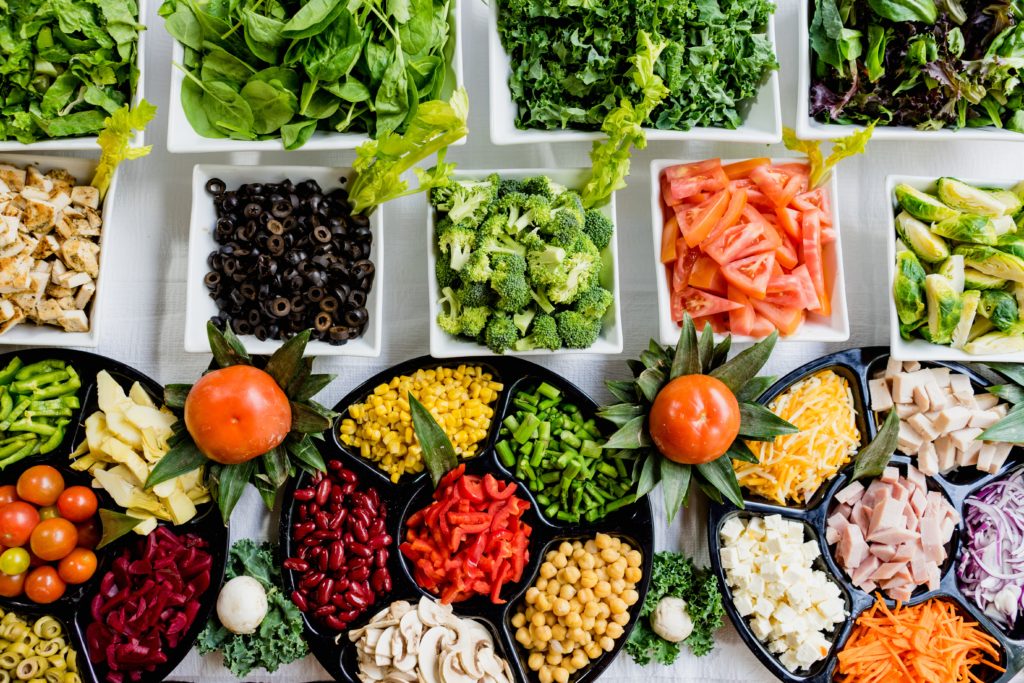
There was absolutely no doubt in my mind as far as my status as an addiction-free person was concerned, till I came across this quote by Nassim Nicholas Taleb ——
“The three most harmful addictions are heroin, carbohydrates, and a monthly salary.”
And of course, after reading it, I had no option but to declare myself addicted to not one but two substances (sorry to disappoint you there — not the first two but the last two mentioned in the quote). But for the purpose of this article let me stick with the analysis of my carbohydrate addiction.

An addiction is something you keep doing even after knowing very well it has deleterious effects on you. The urge to stick with the habit becomes so strong it ends up reprogramming your brain’s reward mechanism, through positive reinforcement. So much so that you feel the need to keep indulging the habit even when you know you should stop.
However, before declaring myself an addict, I had to test the veracity of the claim by putting myself through the phase of abstinence. And I was pretty disappointed to notice few of the telltale signs of withdrawal. The sense of uneasiness was there to be felt for some days.
The bubble of comfort created through my default choices was proving to be a major obstacle to my own optimum performance. And I was pretty oblivious to this fact.

Identifying Patterns
Digging deep into the reservoir of my creative resources required a certain level of purity and focus on my energy. I could access that unadulterated form of energy only in short intermittent phases — making me long for more.
And the most frustrating part was I couldn’t simply identify the reasons behind the inconsistencies. Therefore, I started observing the duration of my peak performance – it was primarily divided into four phases:
7 —— 9 am | 12 —— 1 pm | 4 — 5 pm | 7 —— 9 pm
Can you notice a pattern here?
It is predominantly during a couple of hours before food.
This was a clear indicator that intake of food was somehow hampering my consistency in peak performance.
But food is supposed to be the primary source through which we tend to derive all our energy, then how can food be an impediment to the efficient working of this body and brain.

Food choices
As soon as I brought some awareness into the food I was eating, it became obvious that the reason had something to do with choice and portion of food preferred by me.
Most of us never dare to question our default eating habits, simply because we are culturally so conditioned to accept it as a given way of life. So the prerequisite for any modification is rarely felt by any of us. And I was no exception to it.
Brought up on the predominantly staple diet of carbohydrates, milk, vegetables, and some portion of fat & protein, the very idea of limiting carbs intake felt like an alien concept. However, I didn’t shy away from giving it a try.

Reducing the intake of carbohydrates
I started by replacing my carb portion with more of protein and vegetables. Since I am a vegetarian, I relied more upon non-animal source for protein intake.
So the proportion changed from:
Earlier: Carb: 80% | Fat: 10% | Protein: 10%
To
Trial 1: Carb: 40% | Fat: 10% | Protein: 50%
Trial 2: Carb: 50% | Fat: 10% | Protein: 40%
I tried a different combination of food items to derive the desired outcome. But the lightness in my stomach that I was looking for constantly kept eluding me. Switching to greater intake of protein was not solving my problem of feeling a bit bloated.
Then I asked a simple question.
What is the use of protein intake if I am not into professional bodybuilding or into a competitive sport?
I am at my desk most of the time, where my only concern is to get the optimum amount of nutrients needed by my body with minimum food intake; so that I am not feeling full most of the time.
If I have to benchmark it then I would say, the current feeling of fullness which lasts for more than two hours is to be reduced to less than half an hour, so that I am more focused on my task with the minimum amount of Lethargy.

Stumbling upon the practical wisdom
After experimenting with the different combination of foods, I finally stumble upon the fact that there is nothing wrong in consuming carbohydrates as long as it is of the right kind. What we are addicted to is the wrong kind of carbohydrates that have the deleterious effect on our long-term health.
Now was the turn to identify the broad list of the wrong kind of carbohydrates present in my diet:
—— Processed flour
—— Sugar
—— Canned fruit juices and drinks
—— Processed or polished cereals and legumes
—— Sweets having preservatives
I replaced almost all the wrong carbohydrates with these good carbohydrates having all the necessary vitamins, minerals and proteins:
—— Beans, cauliflower, spinach, and seasonal leafy vegetables
—— Broccoli, tomatoes, cucumber
—— Fresh fruits and juices
—— Freshly made or baked sweets
—— Unpolished rice, wheat, and legumes
The trick here is not to tinker with your default consumption of carbohydrates —— if you are consuming 70% of your food in form of carbohydrates then stick with it. Because these are often shaped by your cultural and environmental needs, you just need to replace one kind by the other kind.

Methods to counter addiction
Apart from the healthy switch, following methods have helped me immensely in combating this addiction:
1: Awareness
Bringing awareness to what I am eating has made me more alert towards my food choices. For example, if I am aware of the fact that being stressful is making me reach for my regular cup of lattes, then I become more mindful of alternatives to which I can address my stress.
2: Not being the slave of tastebuds
Bringing the default food choice in the open. Over time, my default choice of food in general and carbohydrates, in particular, was so tied up with my tastebuds that I forget to even question the nutritious value of the food I was eating. For most of us, when it comes to taste, we hardly do care about the nutritious value of tempting foods lying in front of us.
3: Environmental modification
If I am addicted to sweets, I need to make sure they are not to be found in close proximity to my kitchen or refrigerator. Hard thing to do especially when you are living with your family. Sometimes it’s not possible to clear the sweets (or chips or whatever you’re addicted to) out of your environment, due to various reasons, but you should never shy away from trying your best without any excuses.
4: Discipline + Duration = Habit
Believe me, I had to fight the constant urge to get back to my old habit of eating on daily basis. Because, the lapses will inevitably happen, but the trick here is to pause and observe it without giving into it. As a consequence, you will start witnessing the rise and the passage of your urge without being swayed by it.
It is just a matter of holding on to discipline for such a duration of time when it succeeds in transforming itself into the habit. After that, you are no longer required to dig deep into the reservoir of your limited willpower to sustain it.

Signs of transformation
If you can persist with these changes for a duration of 6 to 8 weeks you are bound to witness following signs of transformation within you:
1: Food will no longer make you lethargic, instead you will start feeling more energetic after your meals.
2: You will start witnessing amazing improvement in your focus. As a consequence, your duration of peak performance will see a northern trend.
3: You will start witnessing a sense of ease and calm within your overall persona.

Parting thoughts
Perhaps, it’s time to stop declaring war on ourselves through processed foods, sugary drinks, and instead treat ourselves with kindness by switching to plant-based whole food to grow and sustain healthy and vibrant personalities.
It’s high time we start recognizing nutrition as the cornerstone of mind-body alignment, and not just a footnote. Concurrently, we need to leave our obsession with reductionism paradigm, where the focus has always been on parts at the exclusion of the whole.
We need to appreciate that our body is a holistic, interconnected system, and default thinking of it as a ——collection of individual parts and systems, in which solitary chemicals do independent, and unrelated things —— is something that needs immediate redressing.
![]()
Worth Sharing?
If you got something from this post, and feel someone else in your life needs to see this, please share it and tell them how much you care about them.
Please click the social media button of your choice.

Very very useful for everyone. Thanks Sir!